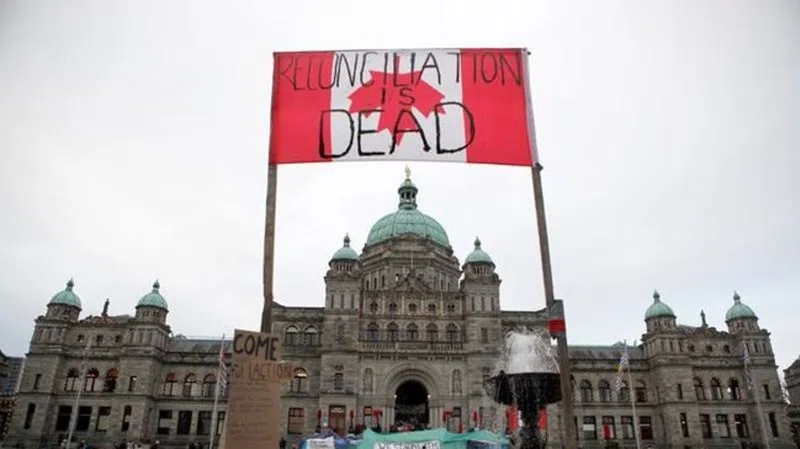
Pipeline protests impact B.C. legislature and Canada’s rail network
Protests in support of Indigenous hereditary chiefs who oppose a major pipeline project flared across Canada for a fifth day on Tuesday, disrupting British Columbia’s legislature and forcing the cancellation of dozens of commuter and freight trains.
Hundreds blocked the entrances to the B.C. legislature before Premier John Horgan’s government delivered its throne speech. Protesters, who have been camping outside the building since Friday, chanted “Shame” as politicians tried to enter the building with help from security.
Shaylynn Sampson, 20, said demonstrators plan to remain outside the legislature until the province agrees to pressure the RCMP and a natural gas company to withdraw from Wet’suwet’en traditional territories in northern B.C.
“My ancestors have been doing this for hundreds of years. I’m willing to do this as long as it takes,” said Sampson, who has Gitxsan and Wet’suwet’en heritage.


